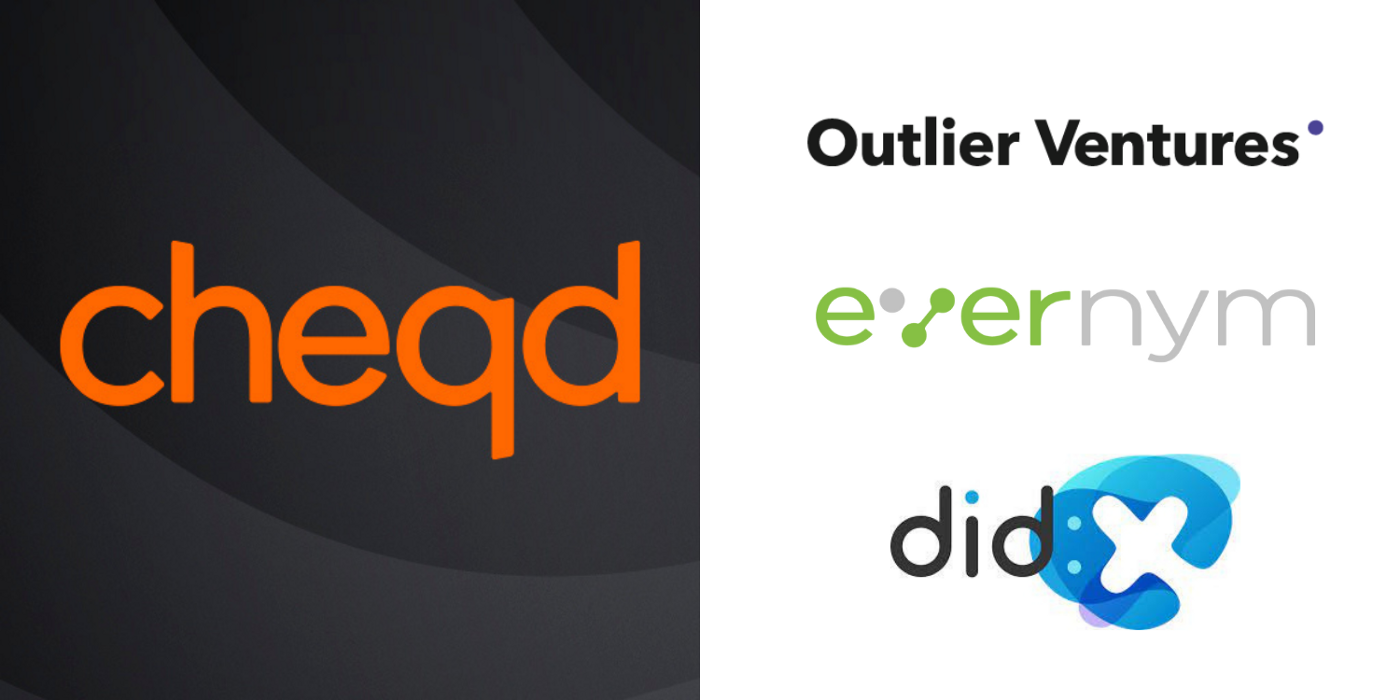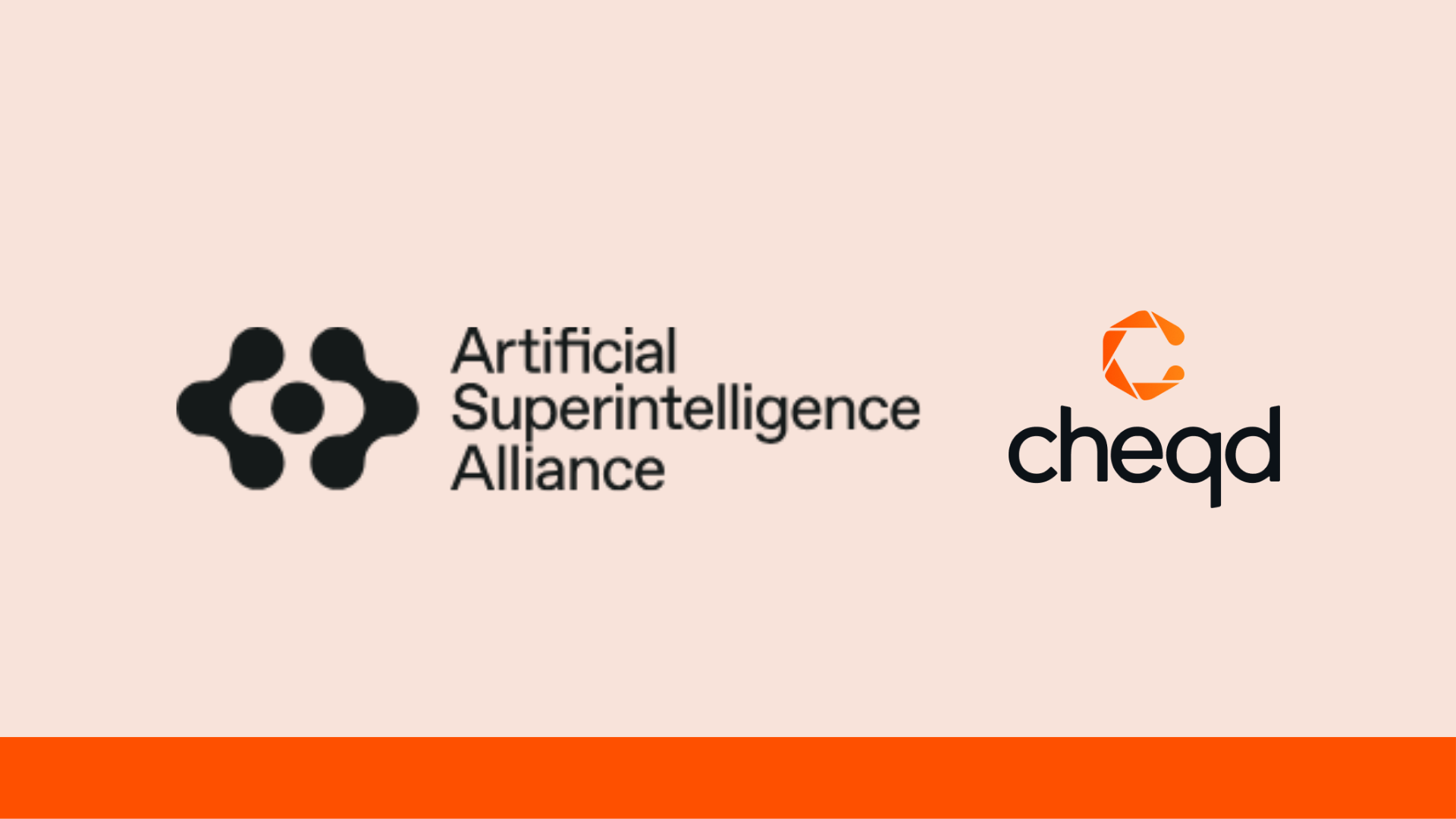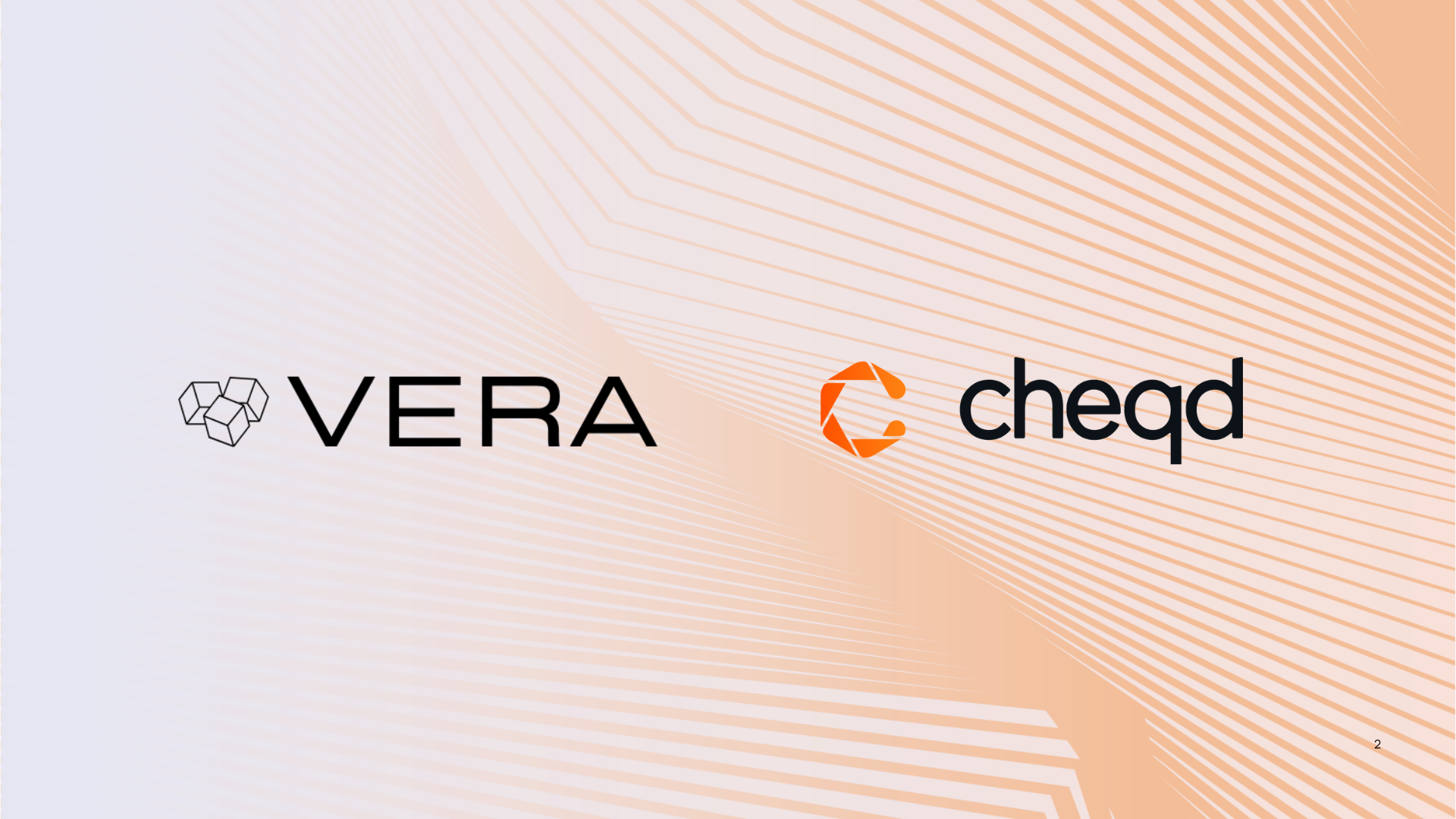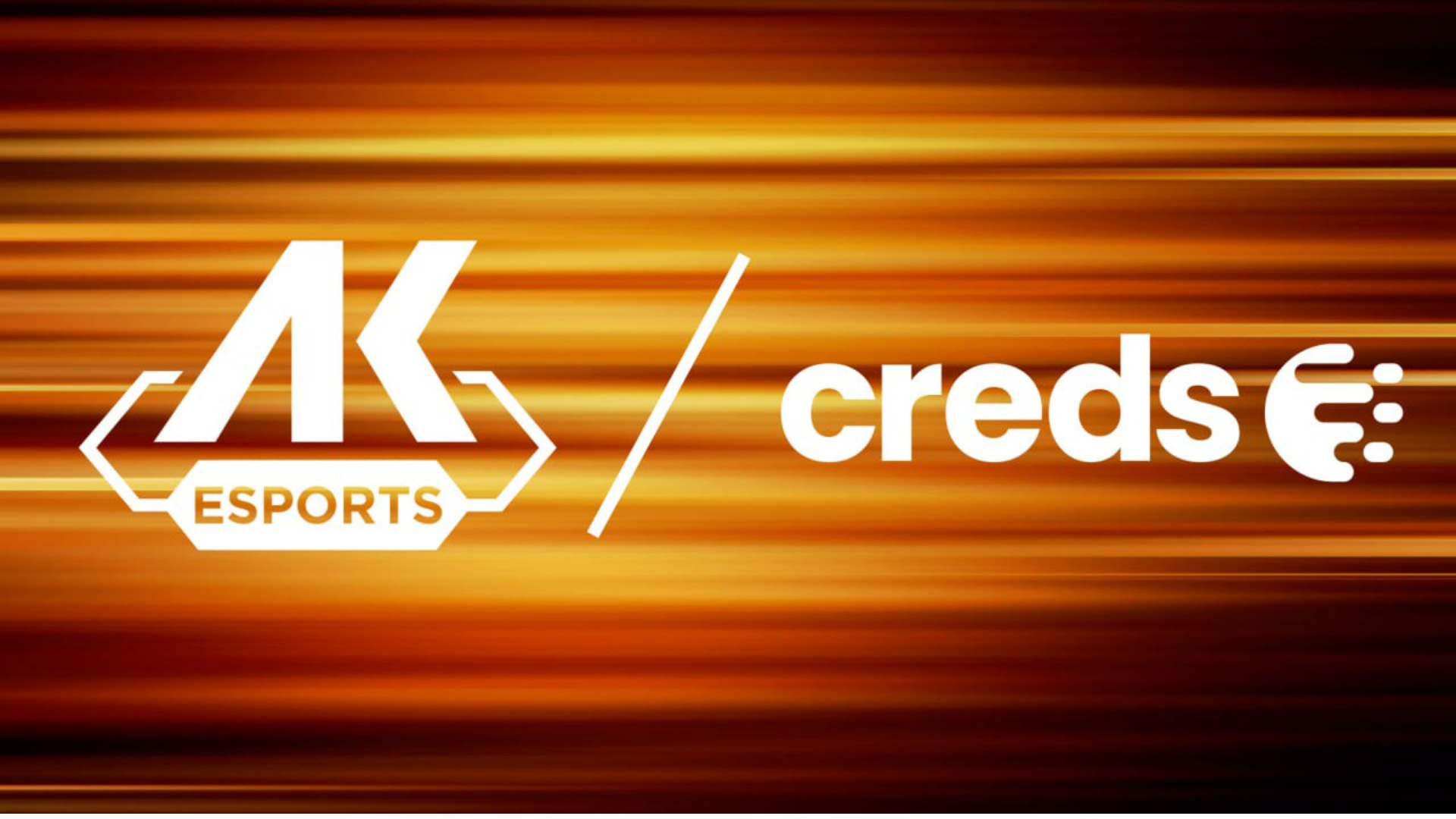cheqd has open-sourced its code for a token-incentivised SSI network built on the Cosmos blockchain framework. We’re expanding beyond private beta to a public testnet, with plans for publishing further details about tokenomics and governance in future releases.
We’re excited at cheqd to announce that we’re open-sourcing the early version of the code we’ve been building for the past few months for a purpose-built self-sovereign identity (SSI) using the Cosmos blockchain framework with the $CHEQ token. As we progress on our product roadmap, this marks another major milestone for the cheqd product & engineering team.

cheqd private beta testnet partners
Our persistent cheqd testnet has been live in private beta for just about a month with our initial launch partners: Evernym, Outlier Ventures, and DIDx.
About cheqd’s open-source repositories
With this step, we’re expanding the ability for anyone with the capability to run a node to be able to participate in the public beta of the cheqd testnet. Our code is being released on cheqd’s GitHub organisation page under the Apache 2.0 License, which will allow open source contributors to use, modify, remix and deploy our software and join our testnet (at present) and the cheqd mainnet (when launched).
The repositories that we’re releasing to the public are:
- cheqd-node: The server/node portion of the purpose-built network for decentralised identity. This is where the code for our public-permissionless SSI network analogous to the Hyperledger Indy node will live. In one of our previous blog posts, we explained why we built our stack on Cosmos instead of Hyperledger Indy or other frameworks.
- cheqd-SDK: A Rust client library for ledger-independent self-sovereign identity (SSI) operations on Verifiable Data Registries (VDRs). Integrates with cheqd-node server-side. This repository is built in collaboration with our partners at Evernym and is currently a mirror of Evernym VDR Tools. This repository is analogous to the Hyperledger Indy SDK that current SSI application vendors embed in their products.
What has changed since the private beta?
Our testnet launch in July 2021 gave us valuable feedback from our early adopters in being able to refine where our engineering teams should focus on. While we initially planned to release a Cosmos-based Decentralized Identifiers (DIDs) specification for August, the feedback we received was to focus on making the installation and upgrade processes easier.
We’ve therefore worked towards making installation packages and releases (along with documentation) available in the following formats:
- Debian (.deb) package installer, targeting Ubuntu 20.04 LTS (the Linux distribution most Hyperledger Indy node operators should be familiar with)
- Docker containers, as a more platform-independent way of deploying the cheqd blockchain node software
- Linux binary packages, as a baseline for other Linux distributions
- Instructions on how to build any of the above from the source.
We’re also exploring support for other platforms in the future, for example, a Snap package for other Linux distributions.
One challenge with having a private beta was the logistical challenge of allowing prospective node operators to freely browse and decide to install the code at their own pace, rather than individually trying to coordinate access to the repositories.
What functionality is currently available on cheqd testnet?
Our existing node operators (and prospective ones) asked us, “Great, I have a node working. What can I do next?!”
We aimed, therefore, to make this milestone one where prospective users could go through an end-to-end journey of setting up a node and being able to read/write DIDs on the ledger.
While it’s early days, the cheqd Cosmos Command Line Interface (CLI) user guide we’ve started building defines what can be done on our testnet. We started this by asking the following:
Basic Cosmos node setup and the “cheq” token
- Creating, managing, and configuring accounts and keys on a cheqd Cosmos node. These are set up steps that new node operators need to do to get started.
- Our public-permissionless model is based on proof-of-stake, so we walk through how to stake and participate in network consensus.
- Basic token functionality for holding and transferring our tokens, called “cheq”, to other accounts on the network.
Basic decentralised identity primitives
- Writing Decentralized Identifiers (DIDs) entries on a ledger paying for DID writes on the cheqd testnet using testnet tokens. As our CEO, Fraser Edwards, and Javed Khattak (our CFO) described in this blog post why self-sovereign identity needs a token; we want to enable new business models for digital identity.
- NYM is the term used by Hyperledger Indy for Decentralized Identifiers (DIDs) that are created on the ledger. For the sake of explaining with similar concepts as current Hyperledger Indy implementations, on our testnet transactions to add a DID to the ledger are called NYM transactions. Future releases of our software are likely to replace the NYM terminology with DID for better understanding.
What’s coming next in cheqd testnet functionality?
Our broad goal is to launch cheqd’s mainnet with the $CHEQ token around October 2021. It will have minimum viable functionality for a stable, production-grade network that offers a new range of functionality for SSI application vendors, digital identity companies, enterprises that need to issue/receive digital credentials, and node operators from a DeFi background.
The two major aims we’ve set ourselves for the next milestone, by the end of September 2021 is to make available:
- Define how tokenomics will work on our network: We aim to describe how our cheqd Cosmos network will behave and what the initial economic parameters will be. (Stay tuned as we announce a live tokenomics session soon!)
- Our governance framework for a public-permissionless SSI network: Alex Tweeddale, our Governance & Compliance Lead, introduced the concept of “entropy” in the governance model we aim to construct. This will help to get closer to decentralised governance that gives the community far greater influence on how the cheqd network will run than current permissioned SSI networks allow.
- Explanations of architectural decisions that will guide application developers on how to integrate and build against our software.
We are also exploring mechanisms to showcase our product roadmap and guidance on how community members can influence the aspects above in a simple, easy to understand and accessible fashion.
How to get involved in the cheqd testnet
If you’re interested in running a node yourself or otherwise getting involved in the code/governance of cheqd, here’s where you can get started:
- “cheq” out our quick start guide on setting up a node on cheqd testnet or reach out to us on [email protected]
- Understand cheqd’s Community Code of Conduct and build/contribute to our source code
- Join the cheqd Community, our chat channel for the open-source community, software developers, and node operators. Reach out to us here for discussions, help, and feedback on the project.
About cheqd
We’re building a secure network that enables individuals to take full control of their personal data. Through our network, anyone can verify identities quickly and securely.
We help companies monetise self-sovereign identity to stay viable, profitable and more successful than before. Issuers of data benefit from a recurring revenue stream whenever that data is used in the future without needing to process it constantly. Recipients of data can lower their costs since any data they receive is digital, trustable and re-usable, reducing the processing overhead.
Ultimately, we’re making it easier for individuals and organisations to trust each other.
For partnership and node operator queries for cheqd, please get in touch at [email protected].
Follow the cheqd community
We would love to know your thoughts as always either as comments on the article or via any of our other channels below!
Make sure to join our rapidly growing Telegram community to stay updated with our most recent news and insights.
P.S. We’re also on Twitter and LinkedIn, make sure to cheq in!






